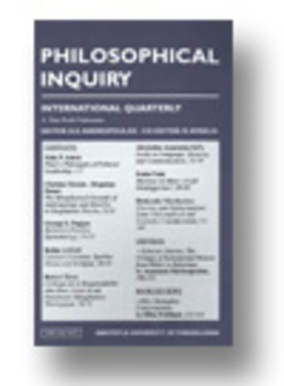Meaning, truth conditions and the internal point of view : the ethical dilemma
Part of : Philosophical inquiry ; Vol.XI, No.3-4, 1989, pages 27-45
Issue:
Pages:
27-45
Author:
Abstract:
The present study proposes a via media between intellectualism and voluntarism in ethical theory. It applies a truth conditions analysis to problems of philosophical ethics. Normative statements, in a broad sense of ‘normative’, are what prima facie the appear to be, namely, statements capable of being true or false. The meaning of a normative statement may be identified by giving its truth conditions. Necessary and sufficient truth conditions of normative statements may be found in certain dynamic social phenomena, ‘commitments’ for short. True normative propositions are true from the internal point of view of such ‘commitments’. The meaning of a normative statement may be made determinate by pointing out the ‘commitment’ which is a necessary and sufficient condition of the truth ol that normative statement. All true moral propositions are true from the internal point of view of dynamic social phenomena. These phenomena are not or need not be speech acts. They ma\ be universal, so that the corresponding moral propositions may be both relative to dynamic social phenomena and universal. Central points in this study are carefully proposed as a hypothesis; further discussion and analysis is recommended.
Subject:
Subject (LC):
Notes:
Περιέχει σημειώσεις και βιβλιογραφία




